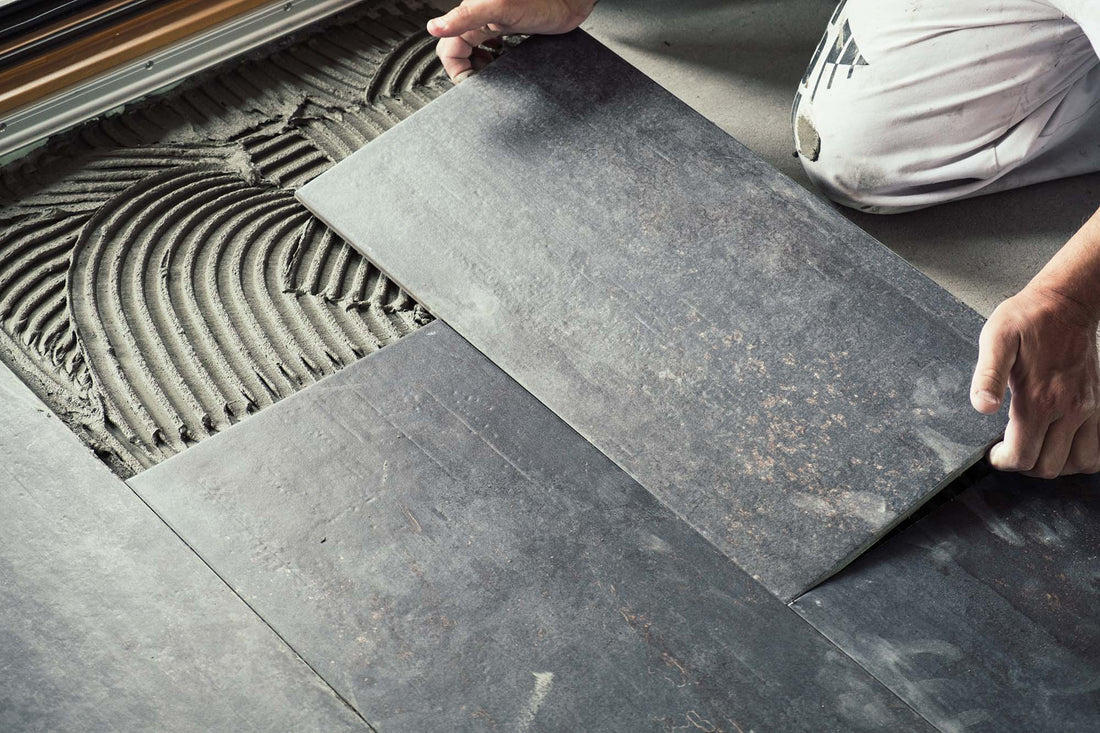
Understanding Tile Ratings: PEI, COF, and More
Share
Choosing the right tile for your home involves more than just aesthetics. To ensure your tile performs optimally and safely in its intended application, it’s crucial to understand various industry ratings. Demystifying tile ratings: PEI, COF, and more will empower you to make informed decisions that go beyond just color and pattern.
Tile Rating Breakdown
PEI Rating (Porcelain Enamel Institute Rating):
- What it is: The PEI rating measures a tile's resistance to abrasion and wear. It specifically applies to glazed ceramic and porcelain tiles. The rating is from 0 to 5, indicating suitability for different traffic levels.
- Why it matters: It tells you where a glazed tile can be safely and durably installed.
- Ratings Breakdown:
- PEI 0: No foot traffic. Wall use only. (e.g., decorative wall tiles)
- PEI 1: Very light traffic. Wall use or residential bathrooms where soft footwear is used. (e.g., bathroom walls, light residential backsplashes)
- PEI 2: Light traffic. General residential walls and floors where bare feet or soft footwear are used. (e.g., residential bathrooms, low-traffic bedrooms)
- PEI 3: Light to moderate traffic. All residential walls and all residential floors. (e.g., kitchens, hallways, living areas)
- PEI 4: Moderate to heavy traffic. All residential and light to medium commercial applications. (e.g., offices, boutiques, light commercial lobbies)
- PEI 5: Heavy to extra heavy traffic. All residential and heavy commercial/institutional applications. (e.g., shopping malls, airports, heavy commercial kitchens)
- Important Note: Unglazed tiles (like many natural stone or through-body porcelains) do not receive a PEI rating as their wear resistance is inherent throughout the tile, not just on a surface glaze.
COF (Coefficient of Friction):
- What it is: COF measures a tile's slip resistance. A higher COF indicates greater friction and less slipperiness, especially when wet. There are different testing methods (DCOF for dynamic, SCOF for static), with DCOF being the current standard for safety.
- Why it matters: Essential for preventing slips and falls, particularly in wet areas like bathrooms, kitchens, and outdoor spaces.
- Ratings: For interior level floor surfaces expected to be walked on when wet, a DCOF AcuTest value of 0.42 or greater is generally recommended. Always check local building codes for specific requirements.
MOHS Scale of Hardness:
- What it is: The MOHS scale measures a material's scratch resistance, ranging from 1 (very soft, like talc) to 10 (hardest, like diamond).
- Why it matters: Helps assess a tile's durability against scratching.
- Example: Porcelain often rates 7-8 on the MOHS scale, making it highly scratch-resistant. Natural stones vary (e.g., marble is softer than granite).
Water Absorption Rate:
- What it is: Measures how much water a tile absorbs. This is crucial for determining suitability for wet or outdoor applications.
- Why it matters: Tiles with high water absorption can crack in freeze-thaw cycles outdoors and are more prone to staining and mold in wet indoor environments.
- Ratings (ANSI Standards):
- Non-vitreous: Water absorption > 7% (suitable for dry interior walls only)
- Semi-vitreous: Water absorption 3% - 7% (suitable for interior floors and walls, not very wet areas)
- Vitreous: Water absorption 0.5% - 3% (suitable for most residential and commercial interior applications, some light outdoor use)
- Impervious: Water absorption < 0.5% (virtually waterproof; ideal for wet areas like showers, outdoor use, and freeze-thaw climates – all porcelains are impervious)
Shade and Caliber Variation:
- What it is: These refer to inherent variations in tile batches.
- Shade: Slight color differences between production runs.
- Caliber: Small variations in tile size.
- Why it matters: Important for consistent appearance and proper grout line spacing. Always purchase enough tile from the same production run to ensure consistency.
Not Sure What Tile is Right for You? Contact the Tile Experts at Standard Tile
Understanding tile ratings is fundamental to selecting the perfect tile for your project. By considering these technical specifications alongside aesthetics, you can ensure your tile is not only beautiful but also durable, safe, and perfectly suited for its intended use, providing lasting satisfaction.
Call or Visit Standard Tile in East Hanover, Edison, Jersey City, Succasunna, Totowa, or Watchung. We are an industry-leading tile retailer with tile stores across New Jersey. We’ve won three Best Of Houzz awards for service and design, and our tile selections will take the interior of your home to the next level. View our galleries here, and visit us at one of our showrooms today for kitchen tile, bathroom tile, porcelain tiles, and ceramic tiles for all of your home’s living areas.